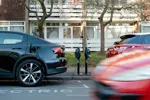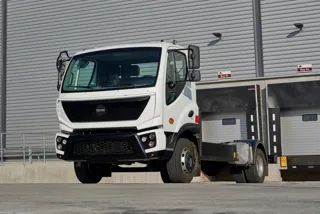The BVRLA is calling for the Government to develop a delivery plan to support the phase-out of non-zero emission HGVs between 2035 and 2040.
Earlier this year, the Government followed up the announcement of a ban on the sale of new ICE cars and vans by 2030 by banning the sale of new diesel or petrol HGVs from 2040.
This is part of the drive to become carbon neutral by 2050.
Since then, the BVRLA has consulted a wide range of its members and has recommended the setting up of a taskforce with a range of stakeholders, including end-users, to make recommendations for the delivery plan.
Gerry Keaney, chief executive of the BVRLA, said: “All of the members we spoke to as part of this consultation highlighted the massive uncertainty around future powertrain technology and infrastructure requirements.
“The HGV market will need massive long-term grants and incentives to go zero emission and Government needs to ensure that any of the lessons and insights learned from the various trials currently underway are fed through to the market quickly and clearly.”
The BVRLA consulted a wide range of members on the phase-out and they highlighted the fact that the vast variety of HGV use cases would require a more nuanced and studied approach.
The organisation is suggesting the Government reconsiders its timings for the phase-out.
As a minimum, it believes that the vehicle weight threshold for the 2035 and 2040 phase out dates should occur at 18 tonnes not 26 tonnes and that another earlier split at 7.5 tonnes should be considered.
BVRLA members have also asked for an increase to maximum permissible weights to cater for the additional weight and loss of payload when moving to zero-emission vehicles.
A wider review of vehicle weights should be considered to prepare for a range of zero-emission technologies being used.
Elsewhere, the Government should consider the ongoing role of low carbon fuels, which have been instrumental in helping reduce emissions.
They should be supported in the short term to deliver immediate carbon reduction gains while zero emission product is not viable.
The BVRLA's call follows a similar one from the SMMT, which last month published a new report calling on Government to help the commercial vehicle industry transition to zero-emission HGVS.























Login to comment
Comments
No comments have been made yet.